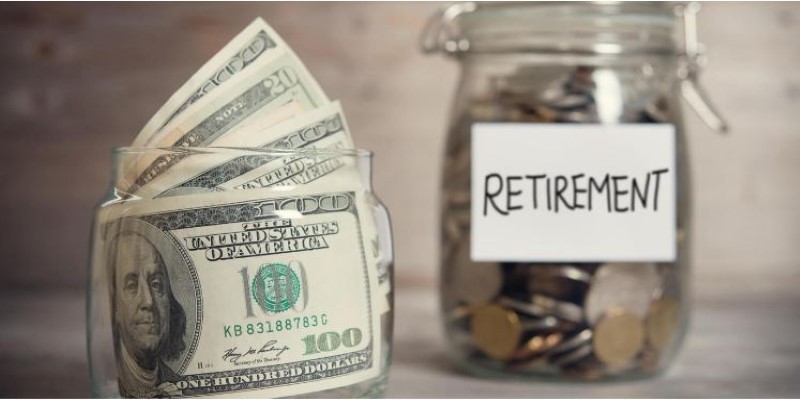In recent years, Stamp Collecting once deemed a charming pastime, has transformed into a multifaceted endeavor. Is it merely a nostalgic pursuit, or does it conceal untapped economic potential? This exploration delves deep into the intricate world of Stamp Collecting, meticulously investigating its Long-Term Returns and the unexpected resurgence observed during the pandemic.
Let's peel back the layers of this seemingly simple hobby to unveil the nuanced tapestry of economic possibilities that lies within the intricate designs of postage stamps. Beyond the surface, this once-charming pastime emerges as a canvas rich with historical, cultural, and economic dimensions, inviting enthusiasts to appreciate its hidden complexities and potential.
Is Stamp Collecting a Losing Proposition?
Stamp Collecting is often perceived as a sentimental hobby rather than a sound Investment. Critics argue that stamps lack the tangible value seen in other Investment avenues. However, a closer look reveals a different picture. Stamps, often adorned with historical significance and artistic beauty, have an intrinsic value that goes beyond the paper they're printed on.
While not a get-rich-quick scheme, Stamp Collecting offers a unique combination of cultural enrichment and potential financial gain. The market for rare stamps, in particular, has seen steady growth, challenging the notion that Stamp Collecting is a losing proposition.
Long-Term Returns
Explore the enduring allure of stamp collecting, where historical significance transforms humble stamps into valuable investments over time.
Patient Approach Yields Lucrative Returns
Collectors who approach Stamp Collecting with patience often find it to be a surprisingly lucrative endeavor. Unlike quick-fix Investment schemes, the value of rare stamps tends to appreciate over time, making them a solid long-term Investment.
Long-Term Investment Potential
The intrinsic value of stamps, particularly rare ones, proves to be a treasure trove for collectors who adopt a patient stance. This long-term approach allows the market to recognize the historical and cultural significance of stamps, contributing to their sustained value growth.

Scarcity and Historical Significance Drive Value
The scarcity of certain stamps, coupled with their historical importance, plays a pivotal role in enhancing their value. Collectors who understand and appreciate the rarity and historical context of specific stamps often benefit from their increasing market worth.
The Penny Black Phenomenon
Take, for instance, the Penny Black, the world's first adhesive postage stamp issued in 1840. Despite its initial face value being merely a penny, a well-preserved Penny Black has evolved into a prized possession for collectors. Today, it can fetch thousands at auctions, exemplifying the substantial Long-Term Returns that patient collectors can enjoy.
Pandemic Resurgence in Stamp Collecting:
The COVID-19 pandemic brought an unforeseen revival to Stamp Collecting, as lockdowns compelled individuals to explore or rediscover the hobby within the confines of their homes. This resurgence was fueled by the captivating allure of stamps, which possess a unique ability to transport collectors across time and space, offering a welcomed escape during the challenges of the pandemic.
The surge in interest not only reignited a passion for collecting but also triggered a notable spike in the prices of rare stamps. This unexpected phenomenon underscored the resilience of Stamp Collecting as more than just a pastime—it revealed its potential as a viable investment even in times of adversity.
The newfound recognition of stamps as both a source of cultural enrichment and a financial asset emphasized the enduring appeal of this age-old hobby in the face of contemporary challenges.
How do you invest in stamps?
Investing in stamps requires a keen eye, a love for history, and a bit of research. Here's a simplified guide on how to dip your toes into Stamp Collecting as an Investment:
Educate Yourself

Immerse yourself in the world of stamps by understanding their fundamentals. Delve into the different types, their historical significance, and how to assess their condition. Knowledge forms the bedrock of a successful stamp-collecting venture.
Start Small
Begin your collection with more affordable stamps, gradually expanding as you gain experience. Look for stamps with historical importance or unique features that could contribute to future value growth. This gradual approach allows you to navigate the complexities of the market.
Quality Matters
Acknowledge the profound impact of a stamp's condition on its value. Opt for well-preserved stamps with minimal wear and tear, as these are more likely to appreciate over time. Quality stamps stand the test of time, becoming valuable assets in your collection.
Diversify Your Collection
Adopt a diversified strategy akin to any other Investment. Collect stamps from various periods, regions, and themes to minimize risks. A diverse collection not only safeguards against market fluctuations but also adds richness and depth to your portfolio.
Stay Informed
Keep a vigilant eye on market trends by regularly monitoring stamp auctions and exhibitions. Actively participate in the stamp-collecting community, networking with fellow collectors to gain valuable insights. Staying informed ensures you make informed decisions based on current market dynamics.
Consider Expert Advice
For serious investors, seeking advice from experienced collectors or appraisers is invaluable. Relying on their expertise can assist you in making well-informed decisions, offering valuable insights into market intricacies and potential investment opportunities. Expert advice serves as a compass, navigating you through the intricate world of Stamp Collecting as a viable Investment.
Conclusion
In the world of Investments, Stamp Collecting stands out as a unique blend of passion and potential profit. While it may not offer the instant gratification seen in more conventional Investments, the Long-Term Returns and the joy derived from this hobby make it a compelling choice. The pandemic's unexpected boost to Stamp Collecting demonstrates its enduring appeal.
So, is Stamp Collecting a losing proposition? Far from it. When approached with diligence and a genuine interest in the stories these tiny pieces of paper tell, Stamp Collecting can be a rewarding journey both culturally and economically.




